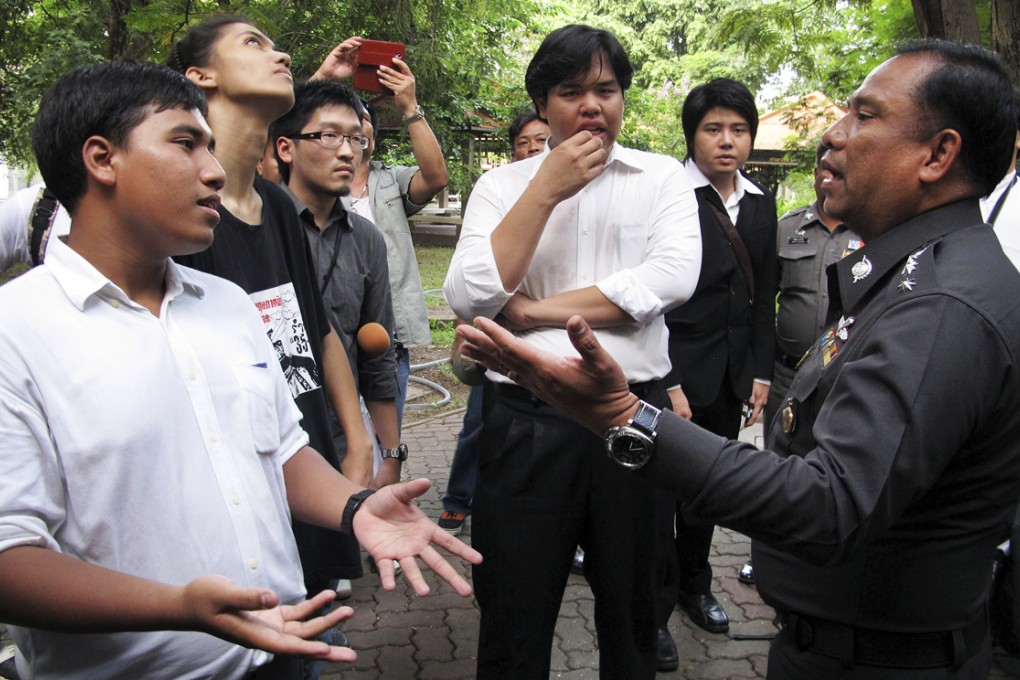No hope for rights, Thai professors say after junta halts democracy seminar
No hope rights will be respected, say professors after Thai junta censors democracy seminar

The university students who organised a seminar in Thailand on the demise of dictatorships knew that one particularly sensitive topic had to stay off-limits: their own country.
Since overthrowing an elected government in May, the nation's military rulers have jailed opponents who dared to speak out and silenced the rest with the threat of prosecution. They have censored the media, dispersed protesters and forbidden open debate over the nation's fate.
So when 150 people showed up to attend the latest in a series of talks Thammasat University called "Democracy Classroom", one weary student reminded all those present they should only discuss failed regimes - "please repeat after me, overseas".
A few minutes after it began, however, the event was cut short by police - triggering a rare public uproar from university professors nationwide over the expanding reach of junta censorship. The incident, the first of its kind on a college campus since the coup, also underscored the fact that the deep societal tensions that have fuelled a decade of political upheaval here are not being healed, but suppressed.
"The military says they want unity and reconciliation," said student Ratthapol Supasopon, who helped organise the September 18 event at Thammasat's Rangsit campus, outside Bangkok. "But how can that happen if we can't even talk to each other?"
Thailand has been beset by upheaval since billionaire former Prime Minister Thaksin Shinawatra was deposed by the army in 2006. His downfall was part of a power struggle that pits the rural north against a traditional, military-backed elite based in Bangkok and the south.